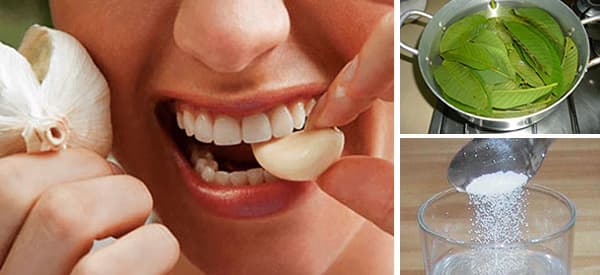
How To Reduce Dental Pain Naturally
Few things are more difficult to cope with than dental pain. That throbbing ache that refuses to subside? The lightning-sharp pain that hits your molar even if you’re not eating or drinking? They can both make it impossible to concentrate, relax, or go about your daily routine.
Toothaches have several causes, including tooth decay, gum irritation, broken teeth, tooth removal, and abscesses. Although all of these are possible sources of your current dental pain, people are most likely to experience toothaches when a nerve in the root is irritated. If your dentist isn’t able to see you right away, how can you get the pain at a more manageable level, so you can carry out your daily activities until your appointment time rolls around?
While over-the-counter medications are available, there are also natural sources of pain relief. This article highlights several time-honored remedies that reduce dental pain naturally, so you can manage your symptoms until your dentist is ready to see you.
Keeping Your Head Elevated
When you’re in pain, you naturally crave rest, but if you have a toothache, lying down can exacerbate your pain since lying down increases blood pressure in your head. When you go to bed, prop your head up with pillows or sleep upright in a reclining chair until you can see your dentist.
⇒ Are You Sleeping In This Position? Here’s How It Can Affect Your Health (Video)
Salt Water Rinse
The cure for toothaches and related pain can often be found in a simple saltwater rinse. Some toothaches result from food particles getting caught in your gums or between your teeth. When this happens, rinsing with warm salt water can loosen stuck food and relieve pain. When you don’t have floss on hand or when your teeth are feeling sensitive, this is a great solution.
As a natural disinfectant, salt will keep your mouth clean in case stuck food particles cause any real damage. The simple use of warm salt water can also provide temporary relief from toothache pain resulting from an infection.
Mix 1/2 tsp. to 1 tsp. of salt with warm water and swish it around in your mouth for 30 seconds. The process can be repeated throughout the day as needed, but you should see a dentist if you are rinsing more than five times every day.
Cold Compress
A toothache caused by trauma is often temporary – once the swelling subsides, it will go away. Fortunately, an improvised cold compress reduces pain and swelling. By constricting blood vessels, cold compresses provide pain relief and numb the area.
Wrap ice, an ice pack, or even a bag of frozen vegetables in a cloth or dish towel and apply it to the sore area at 20-minute intervals throughout the day. Be careful not to overdo it, as exposing bare skin to freezing cold surfaces for too long can cause injury. If the pain lasts longer than a day, see your dentist, as a tooth injury can result in chips and cracks that only a dental professional may be able to detect.
Peppermint Tea Bags
According to this study, peppermint oil has antimicrobial properties that can improve oral and dental health. The research itself was inspired by concerns about the side effects of antibacterial treatments as well as increasing bacterial resistance to antibiotics. Aware that essential oil had been used to treat various illnesses since ancient times, researchers studied the effects of peppermint oil on dental pain and found it to be beneficial.
Put a warm peppermint tea bag on your toothache and let the oils do their work. You can also put the teabag in the freezer until it is completely cold and then apply it to the sore area to reap the combined benefits of peppermint oil and a cold compress.
⇒ The Real Cause Of Tooth Decay Can Be The Toxic Food You Eat Every Day (Video)
Garlic
For centuries, garlic has been used for medicinal purposes and works well to relieve toothache pain. It contains allicin, which is antimicrobial and antibacterial and can help destroy the bacteria that cause dental pain.
Treatment generally consists of two options:
Peel and chew a fresh garlic clove using the painful tooth. When you chew it, it produces the allicin needed to fight any bacteria that may be causing the pain. Keep the chewed-up clove against the sore area for a while.
Mix crushed garlic with a little salt. The garlic paste can then be applied with a cotton swab or fingers.
When fresh garlic is not available, you may wonder if using garlic powder to relieve tooth pain. Allicin, however, is only found in fresh garlic, not garlic powder, so it won’t help toothaches.
Clove
Dental professionals have long used cloves for pain relief because they contain eugenol, a natural anesthetic, and antiseptic that aids in the elimination of germs. In dentistry today, eugenol is still used in a purified form.
There are three ways you can use cloves to reduce dental pain naturally:
Ground: Apply a pinch of ground cloves between your gum and cheek, in the area of the pain. As soon as your saliva mixes with the powder, you should experience pain relief.
Whole Cloves: Put two or three cloves in your mouth near the sore area. Once they soften, you can chew on them to release the oils for aching teeth or gums.
Compress: Add a few drops of clove essential oil to 1/2 teaspoon of olive oil and mix well. Hold a cotton ball soaked in this mixture gently but firmly against the sore tooth or gum.
Vanilla Extract
As an antiseptic and analgesic, vanilla extract is effective at relieving tooth pain, though only temporarily. It contains vanillin, which has been shown to have anti-inflammatory properties. The key is to use pure vanilla extract, as imitation extract is not as effective.
To use, pour some extract onto a cotton ball, apply it to your gums in the painful area, and hold it in place for a few minutes. Repeat as often as needed until you can see your dentist.
Guava Leaves
Those with a severe toothache can benefit from the anti-inflammatory, antimicrobial, and analgesic properties of fresh guava leaves.
The simplest application is to take a few fresh guava leaves and chew them until their juice starts relieving your pain. To create a pain-relieving paste, boil five guava leaves, let them cool to room temperature, and crush them into a paste. Apply it to the affected area to get relief from toothache.
Conclusion
Oftentimes, toothaches are signs of underlying dental or oral health issues that require treatment by a dentist. If these natural remedies fail to relieve your toothache, or you suspect that your dental pain may be the symptom of something more serious, you should see your dentist.
You may also like: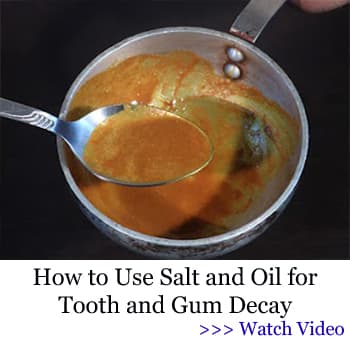
10 Natural Remedies for Toothaches
The “Painkilling Plant” That Grows in Most Backyards (Video)
How To Make A Natural Toothpaste At Home

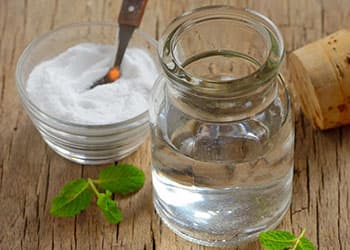

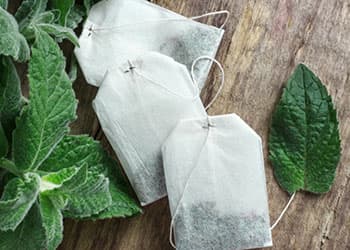
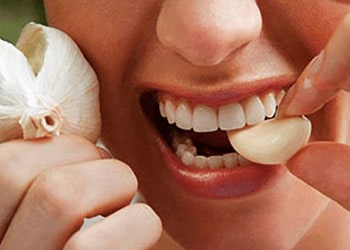
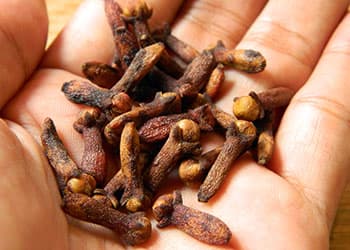

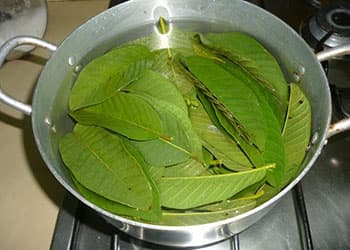
Coconut oil pulling is amazing for oral health! Take a spoonful of coconut oil and swish it around for 20 minutes. Spit it out when done.
Be sure and spit it out in the trash or it will clog your pipes!
Hello Mike,
Thank you for your post. Coconut oil is also an effective home remedy to whiten your teeth naturally.
If you’re interested in reading more about it, you can check out the article below:
https://thelostherbs.com/home-remedies-to-whiten-your-teeth-naturally/
Many blessings and good health!
test
oh, this is so rare – your website seems to have passed my test – i really do appreciate any website that works so nicely! i just wanted to comment that many times i have used the clove oil as you sugjest and very effectively so. but insted of diluting it i put the pure clove oil directly on the problem tooth/into any cavities, using a swab, good miror, bright light and tweezers sometimes. then i rins with warm water. everything feels a little burny after that treatment, but only for a short time. then the pain is usually much diminished for at least an hour. for me the clove oil seems to work even better than that OTC stuf from the drug store and at a surprizingly lower price, without so much overpackaging and over commercializing!
Hello Russell,
Thank you so much for taking the time to share your experience with us! We are happy to hear the clove oil remedy alleviates your pain.
Many blessings and good health!
If you can find tomar essential oil, it works really well for tooth pain. I have also used a crushed aspirin directly on the tooth.
Hello Beth,
Thank you for your comment! Tomar oil is indeed an effective remedy for dental pain or gingivitis, as it has strong anti-bacterial properties.
Many blessings and good health!
Excellent articles. Naturally we are surrounded by all the natural plants. Yet not unaware of the values of it.
Hello Mahen,
Thank you so much for your kind feedback! It’s heartwarming to hear you enjoy our articles.
Many blessings and good health!
Plantain leaves with yarrow leaves twisted together and chew gently on the sore tooth gum area Will not only kill the bacteria but also kill the discomfort.
Hello Cheryl,
Thank you so much for your comment. We love it when our readers share their valuable knowledge with all of us!
Many blessings and good health!
Oil of oregano also works really well.
Hello Kathy,
Thank you for your post! Oregano oil is indeed a powerful antibiotic, and it helps reduce swelling and pain.
Many blessings and good health!
I am unable to find any information on an essential oil Tomar? Do you have another name for it? Or maybe where it can be purchased?
Hi, Scarlet. This article is the first time I’ve heard of tomar oil. Perhaps this info from the link below will be helpful (within the full article is a link to buy tomar oil; it also mentions a toothpaste made with tomar oil):
“Ayurvedic system of natural healing has used Tomar seeds for treating numerous health conditions including oral problems and this is the main reason why this tree has been named as Toothache tree. This is a proven fact and is in practice even in today’s contemporary living. Popular Indian Ayurvedic toothpaste like Dabur Red toothpaste has Tomar seeds for its antiseptic and odor fighting potential along with other powerful herbs like pippali, kashni, lavanga, sunthi, pudina, maricha, karpoora, and hareetaki.
Tomar tree is also known with other popular names like Toothache tree, prickly ash, suterberry, yellow wood, tumbru, darmar, tumru, timroo, tejphal and mukthrubi. The most common synonym for Zanthoxylum armatum is Zanthoxylum alatum. Tomar seed oil is pale yellow in color with an energizing aroma for which it has been mainly used in the making of apothecary perfumes, incenses, colognes, forest notes and certain other high class floral compositions.
Ayurveda states that the tree of Tomar known as Tumburu or Gandhalu in the Ayurvedic world is yet another significant gift of nature to mankind. The essential oil extracted from the seeds of this tree are said to have healing properties like antiseptic, hepatoprotective, stomachic, disinfectant, deodorant, anthelmintic and carminative.”
https://ayurvedicoils.com/tag/health-benefits-of-tomar-seed-oil